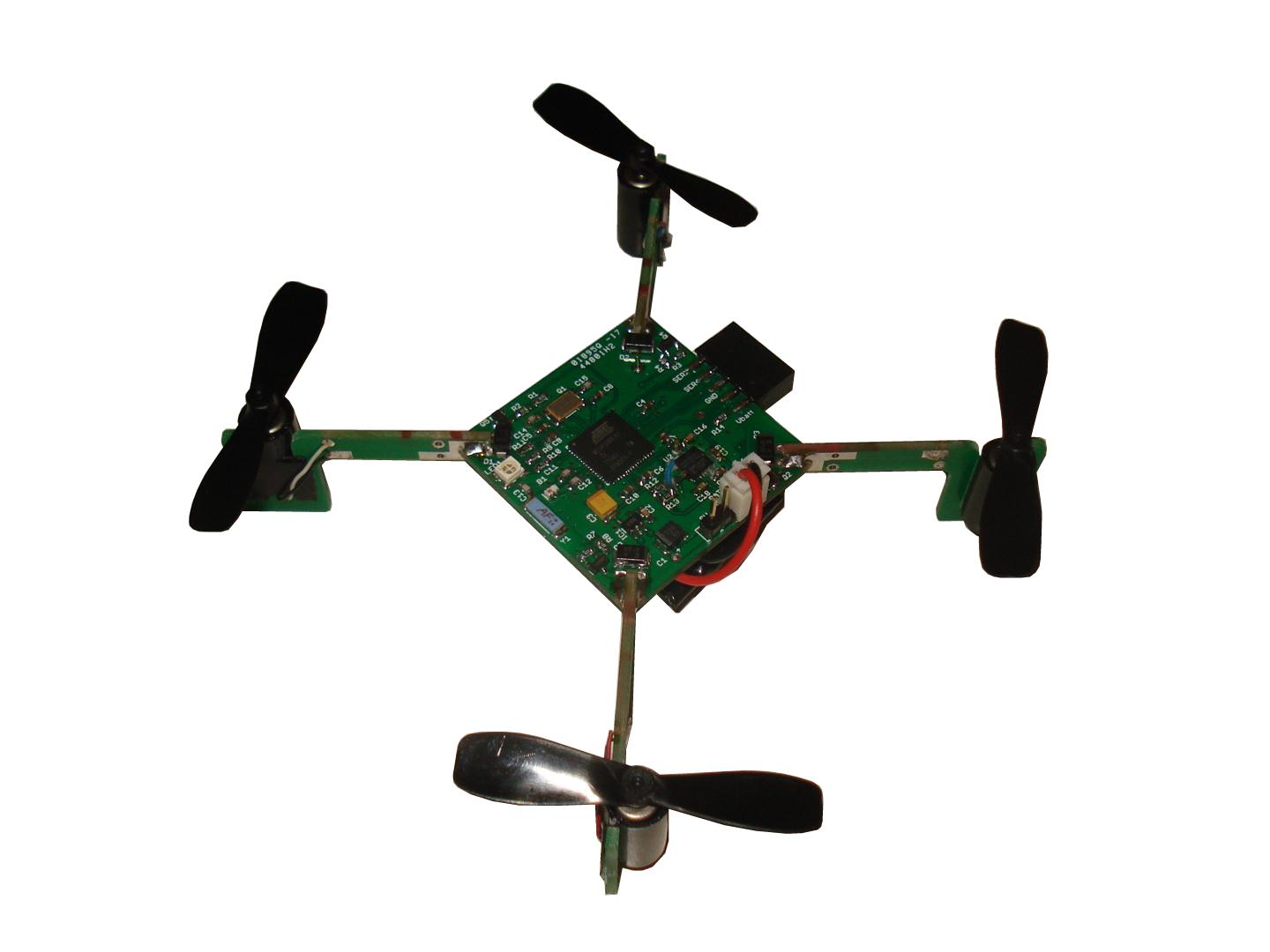The Raspberry Pi seems to try to be everything at once. People seem really ambitious about it... The only ambitious thing is that it's really cheap but it does not mean it can do everything that well. And it certainly will not work very well as a drone.
There are many reasons for this,
- Is that it needs good RF Communication. Are you going to use ad-hoc wireless out side with your iphone or android? What happens if it goes out range... bye bye drone!
- The power supply is very inefficient and there is no built in H-Bridge that needs more power - (you will need 4 channels for four motors)
- The Raspberry Pi does actually allow for an HD camera to be connected which is great but you will come to realise you want OSD and using a Pi to do this is pure overkill and waste of precious battery juice!
- You also need a GPS unit and 3 Axis accelerometer for yaw / tilt compensation as well as flight stability. This is purely code that will need to monitor all this data and Raspberry Pi can handle it easily, but so can a very slow and power efficient AVR chip. So again the Pi is mega overkill
- The Pi is not a minimalistic design and will weigh to much + it needs all this other stuff added to it.
There are very mature projects out there that offer highly optimized and efficient micro controllers with everything that mentioned above - especially a RF link that can handle up to kilometres in range and code for safe back to home auto pilots in case of COM's failure / GPS signal issues or any other lovely surprises.
Sure,
The Pi can do ALL of this very well, but your question is very specific:
Does someone have an idea to make a drone or helicopter fly for hours,
without making it too heavy with all the batteries?
The Raspberry Pi is not the best choice in trying to maximise flight time because of its own gross weight plus additional things like RF, GPS and accelerometer can all be bulky ad-dons. You are still missing H-Bridge circuit and you need to remember (as commented the Pi takes up 500mA) That is already too much consumption for this simple job.
End of the day - If you can balance power consumption and power storage it does not matter how big you build it and what MCU/CPU you use.
Using the Raspberry Pi as the brains could be ideal in UAV applications as planes handle power to weight much better than heli / quadro copters.
With other open source and *closed source / proprietary * the answer is YES - Loads of people try everyday to make it more stable, more power efficient and cheaper to build.
Also the Picopter (Pictured below) is not related to Raspberry Pi in anyway. It refers to AVR's Pico MCU specially designed for low power RF and is much better suited and is only suited for home use as it has no GPS.

Or something I found on Sparkfun, the ArduPilot.
Nevertheless, it is always very interesting to see the Raspberry Pi used in any project.

